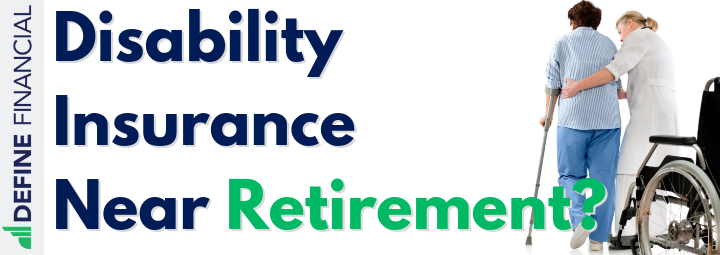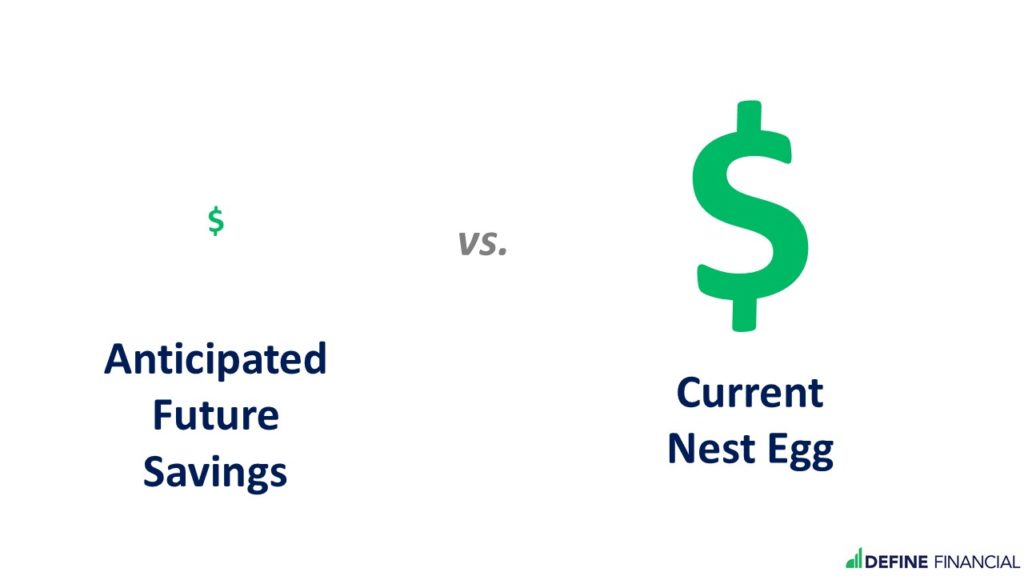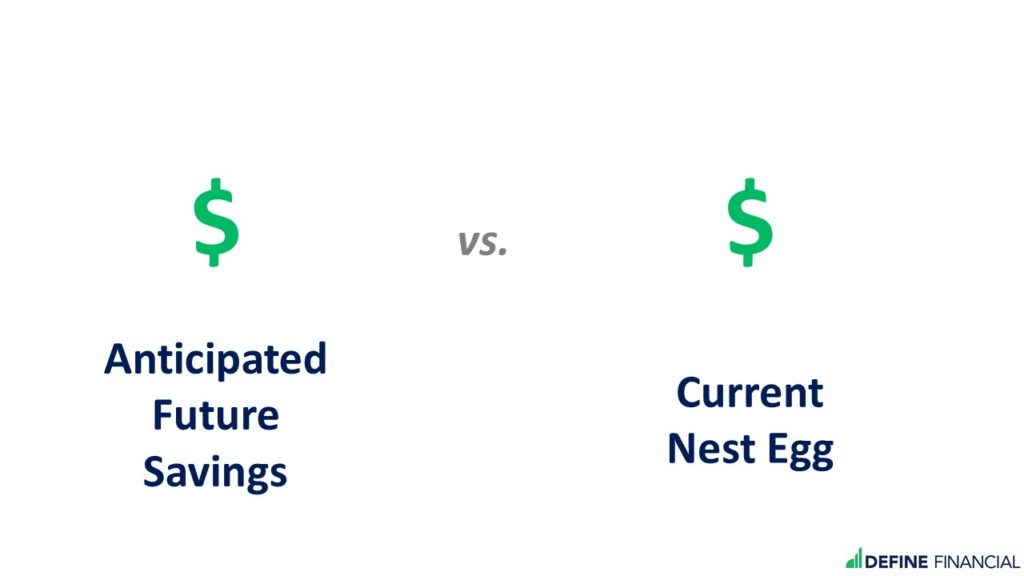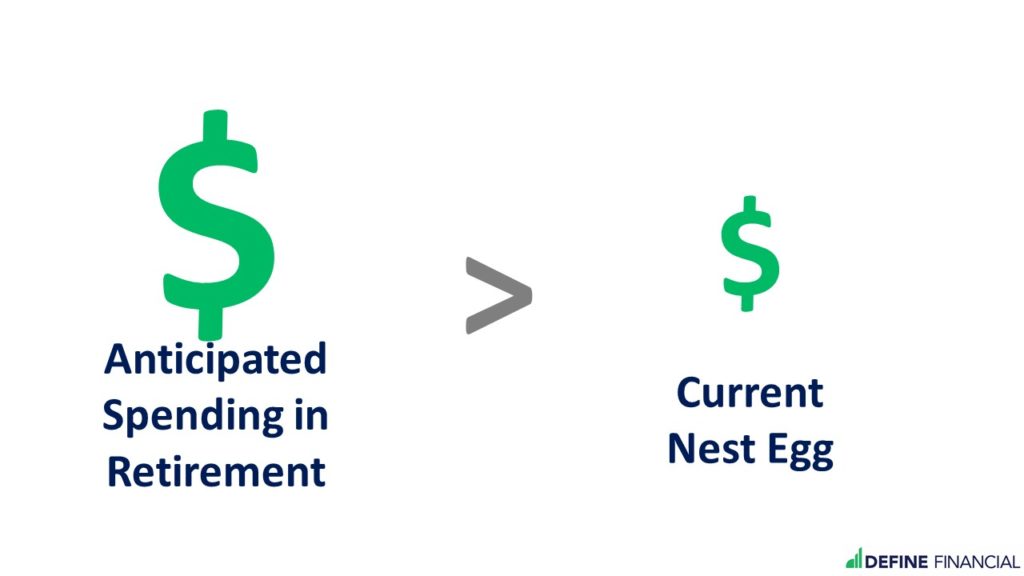
Do you need disability insurance if you’re nearing retirement age?
Key Takeaways
-
If you already have enough saved and don’t need more income, you may not need disability insurance
-
If you’re behind on retirement savings, a disability policy can protect your income while you catch up
-
Big spenders nearing retirement may also need coverage if their savings can’t support their lifestyle
Like most financial planning questions, there is no single answer for every situation.
Whether or not you need disability insurance near retirement depends on a few different factors, including:
- How much money you plan to save over the rest of your working career,
- The size of that future savings compared to your existing nest egg, and
- Your spending habits.
Generally speaking, if you have a big nest egg, and you don’t see yourself saving more in the next few years before retirement, then a disability policy may not make sense for you.
That’s because disability insurance is meant to replace your income (if you’re too injured or ill to work).
But, if you’re in a situation where you don’t need income, the point may be moot.

If you’ve already saved a large chunk towards retirement, and you don’t see yourself saving more in the next few years before retirement, then a disability policy may not make sense for you.
On the other hand, if you’re behind the eight-ball when it comes to retirement savings and therefore you really need the last of your working years to beef up your nest egg, then a long-term disability insurance policy should be a mandatory part of your financial plan.

If you need the last of your working years to do some much-needed catch up with your retirement savings, then a long-term disability insurance policy should be a mandatory part of your financial plan.
As a financial planner, I’ve worked with clients on both ends of the spectrum — those with ample savings for retirement, and clients who still have a long way to go.
Do you need long-term disability coverage? Keep reading to help you decide.
You May Not Need Long-Term Disability
Here is an example of when disability insurance is not required.
Recently, we were creating a financial plan for what was formerly a dual-income household; the wife had just retired. The husband was still working.
Over their working years, the couple had managed to put a million dollars into the wife’s 401(k), and another million dollars into a family trust account.
The still-working husband had several hundred thousand dollars in his employer’s retirement plan.

This couple near retirement did not need a long-term disability policy because they had already saved so much money.
Officially retired from her physician’s practice, the wife had no need for disability insurance. Even with the husband still working, the couple had more than enough money to retire that very day – if the husband wanted to.
In other words, this couple was going to be fine without having to save any more money. Therefore, this couple did not need a disability insurance policy.
Long-Term Disability Insurance if You’re Near Retirement
The story above is quite rare in America; most people don’t have much saved for retirement. Consider this next example.
One of our clients just reached age 60. She had saved little for retirement. What’s worse, her being self-employed meant that her savings was not backed up by any pension or similar benefit.
So, she really needs to make her final working years count; she needs to earn a lot and save most of it if she has any hope of retiring.

This client badly needs her remaining working years to play catch up with her retirement savings.
This client is a strong candidate for a long-term disability policy, despite the fact that she is on the eve of retirement. S
Since she needs to save a large chunk of her income over the next few years, she can’t afford to put that potential income at risk.
She needs to protect that income via a long-term term disability policy.
She also can’t afford to tap her limited savings prematurely – which she would have to do to support herself in the absence of income (as the result of a long-term disability).
Therefore, a long-term disability policy is a must-have for this client.
Other Reasons to Buy a Disability Policy
So far, we’ve covered the feasibility of purchasing disability insurance in two different scenarios:
- Where someone has saved a lot, and therefore probably doesn’t need long-term disability insurance.
- Where someone’s savings are inadequate, and therefore very likely needs long-term disability insurance.
There’s one more category we haven’t yet covered: where a household has a large nest egg and a huge appetite for spending.
Recently, we worked with an engineer who received a large windfall. Outside of this windfall, this gentlemen had very limited savings.
The new money wouldn’t last long as a nest egg if this individual maintains his current lifestyle into retirement.
While the total of his investments could provide for a modest lifestyle in retirement, this gentleman’s spending rate meant he would blow through this new money quickly were he to retire today.

Big spenders near retirement should consider a long-term disability policy if their current savings can’t support their lifestyle goals.
For this gentlemen, the simple solution is to spend less. But while it is simple, it’s not easy; it can be challenging for people to change – especially if that change would impact their (perceived) quality of life.
In the absence of a solid financial plan to track and decrease expenses, a long-term disability policy is a must for this individual. That’s because he simply can’t afford to not have the income he’s so accustomed to.
For that reason, we suggested that this client purchase a long-term disability policy while he continues working and saving more for retirement.
Consider Long-Term Disability As You Approach Retirement
In a perfect world, individuals and couples nearing retirement would never need to purchase a long-term disability insurance policy. However, not everyone has managed to get their spending in line with their income, or to build up enough savings so they can retire comfortably.
If you’re creeping towards retirement and have little savings to show for it, then you need your income to maintain your lifestyle and you need to continue saving money. If that’s the case, consider a long-term disability policy so you can protect yourself and your future earnings.
Do I Need Long-Term Disability Insurance?
If – after reading this – you’re still not sure if you need a long-term disability insurance policy, ask yourself this:
Do I have enough saved so that I can retire in comfort today?
If the answer is “no,” you likely need a long-term disability policy.
Taylor Schulte, CFP® is the founder & CEO of Define Financial, a fee-only wealth management firm in San Diego, CA specializing in retirement planning for people over age 50. Schulte is a regular contributor to Kiplinger and his commentary is regularly featured in publications such as The Wall Street Journal, CNBC, Forbes, Bloomberg, and the San Diego Business Journal.




